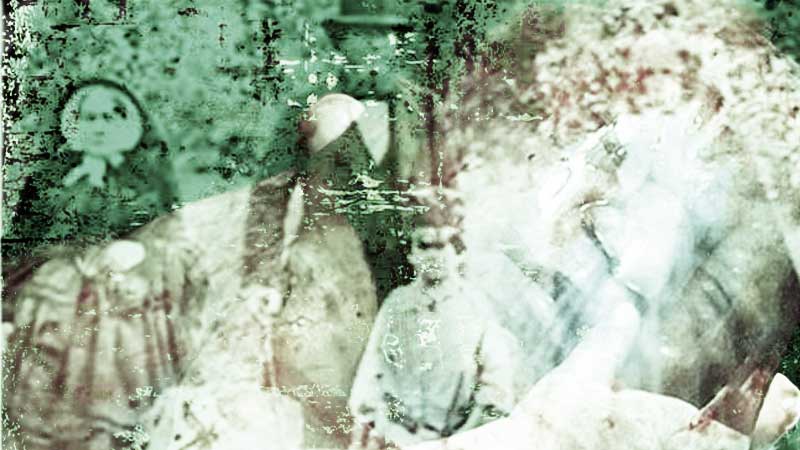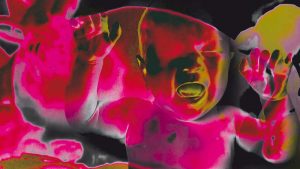CLAIRE BARRAND discovers some insights into caulbearers making the news in Victorian times

Historically it is a superstitious belief that a child born with its head enveloped in the membrane known as the “caul” or “veil,” will be blessed with supernatural abilities. In the United Kingdom, it was considered a lucky omen, and it was said that caulbearers would be exempt from all danger of being drowned.
I’ve found some fascinating insights into the superstitions of the 19th century by exploring the Welsh Newspaper archives to discover just how magical the caul was considered during those times.
An observation was made in The Pembrokeshire Herald and General Advertiser on 7th July 1863.
It cited that the idea of the caul’s anti-drowning properties seems to proceed with the saying that “a person who comes into the world with a cap over his face is destined to go out of the world in the same manner”; that is, to be hanged.
According to the well-known proverb, “he that is born to be hanged will never be drowned.” The membrane is not only said to protect the one born with it but anyone who carries it about his person also which is why cauls were often sold to sailors.
Siamese Twin Caulbearers in India
In the Evening Express 29th August 1892, it was reported that Siamese twins were to arrive at London Aquarium from Orissa, India, to be a curiosity.
The girls named Radica and Dopdica were aged just 3 and a half years old and born in a caul.
The newspaper reports that the children were joined at the chest and shared only one navel.
They were being taught to speak English and had already appeared at the World’s Fair in Chicago before being transported to the U.K for onlookers to pay to view them.
Caul discovered with bible words printed on it!
In The Aberdare Times 21st September 1889, it was reported that the wife of a labourer in Marypoint had given birth to a child with a veil.
The article states that the Veil was removed and placed to one side and a few hours later when examined it had impressed within it the words “British and Foreign Bible Society”.
This caused great excitement indeed with word spreading quickly around the neighbourhood that a miracle had occurred until a doctor discovered that the veil had been placed upon a bible while still fresh and pliable, then it had dried, allowing the words to transfer to it.
However, most insisted the incident was supernatural and declared the child to be a “missionary born.”
Midwife steals Caul as a lucky charm
On 9th May 1895, The Evening Express in Wales reported that a man had made an application to Southampton Police Court for the return of his child’s caul, which he said had been stolen by the midwife at the time.
The applicant stated that Cauls sold for £3 apiece and that it was highly desirable to captains of vessels and old gentlemen, who when proceeding to sea desired to carry them as lucky charms.
Cauls and slaves sold side by side
In The Brecon Reporter and South Wales General Advertiser 24th March 1866, a concern was raised to the attention of the Anti Slavery Society.
An advert for a child’s caul was listed for sale for the sum of £2, but the advert also contained a listing for a human being for sale as a “companion ledger – Terms Moderate.”
The article called upon the society to interfere.
As they pointed out “your society boasts that not a single person in England can be bought or sold, whereas here is a case in point.”
Caulbearer toddler saved from drowning in Essex
The Essex Herald reported the miraculous properties of the caul when a toddler fell into a Well, seven-foot-deep with water in Romford in September 1854. It was said that the young boy had been born with a caul.
When he fell into the well, his brother alerted their mother who found the child motionless and thought him to be drowned.
The terrible accident occurred at noon that day, but his mother managed to revive him, and by 5pm the child had resumed his usual cheerfulness as if nothing had happened.





